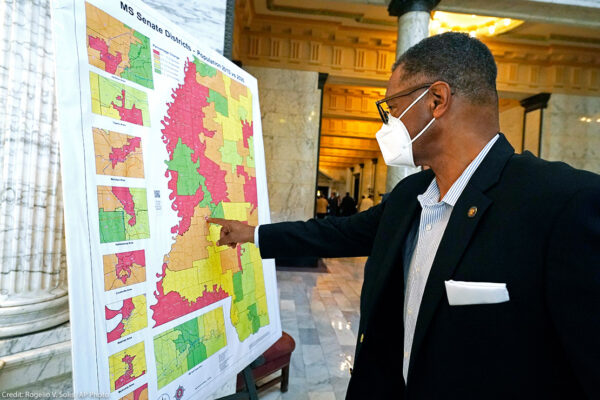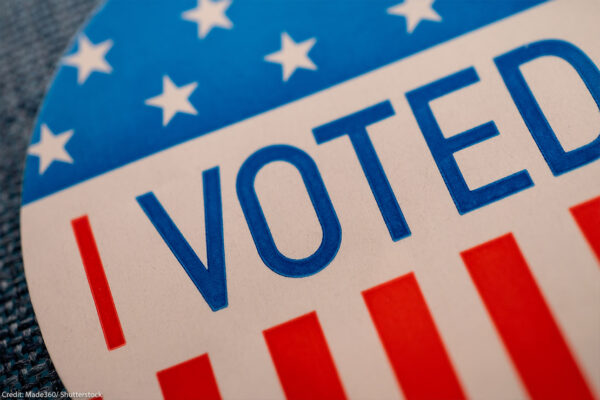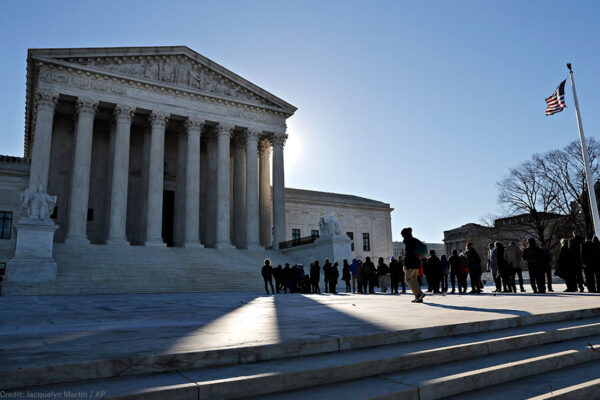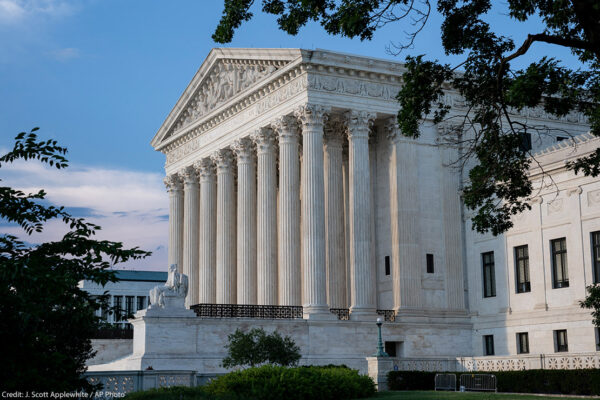Supreme Court Term 2025-2026
We’re breaking down the cases we've asked the court to consider this term.
Latest Case Updates
Ongoing
Updated November 7, 2025
Ongoing
Updated November 5, 2025
Ongoing
Updated November 4, 2025
Ongoing
Updated October 21, 2025
Featured
U.S. Supreme Court
Nov 2025

Voting Rights
Racial Justice
Allen v. Milligan
Whether Alabama’s congressional districts violate Section 2 of the Voting Rights Act because they discriminate against Black voters. We succeeded in winning a new map for 2024 elections which, for the first time, has two congressional district that provide Black voters a fair opportunity to elect candidates of their choosing despite multiple attempts by Alabama to stop us at the Supreme Court. Despite this win, Alabama is still defending its discriminatory map, and a trial was held in February 2025 to determine the map for the rest of the decade.
In May 2025, a federal court ruled that Alabama's 2023 congressional map both violates Section 2 of the Voting Rights Act and was enacted by the Alabama Legislature with racially discriminatory intent.
Washington, D.C.
Oct 2025

Voting Rights
League of Women Voters Education Fund v. Trump
On March 25, 2025, in a sweeping and unprecedented Executive Order, President Trump attempted to usurp the power to regulate federal elections from Congress and the States. Among other things, the Executive Order directs the Election Assistance Commission‚ÄĒan agency that Congress specifically established to be bipartisan and independent‚ÄĒto require voters to show a passport or other citizenship documentation in order to register to vote in federal elections. If implemented, the Executive Order would threaten the ability of millions of eligible Americans to register and vote and upend the administration of federal elections.
On behalf of leading voter registration organizations and advocacy organizations, the ļž–” ”∆Ķ and co-counsel filed a lawsuit to block the Executive Order as an unconstitutional power grab.
U.S. Supreme Court
Oct 2025

Voting Rights
State Board of Election Commissioners v. Mississippi State Conference of the NAACP
Mississippi has a growing Black population, which is already the largest Black population percentage of any state in the country. Yet. Black Mississippians continue to be significantly under-represented in the state legislature, as Mississippi’s latest districting maps fail to reflect the reality of the state’s changing demographics. During the 2022 redistricting process, the Mississippi legislature refused to create any new districts where Black voters have a chance to elect their preferred representative. The current district lines therefore dilute the voting power of Black Mississippians and continue to deprive them of political representation that is responsive to their needs and concerns, including severe disparities in education and healthcare.
U.S. Supreme Court
Oct 2025

Voting Rights
Louisiana v. Callais (Callais v. Landry)
Whether the congressional map Louisiana adopted to cure a Voting Rights Act violation in Robinson v. Ardoin is itself unlawful as a gerrymander.
Missouri
Sep 2025

Voting Rights
Wise v. Missouri
In unprecedented fashion, the State of Missouri has redrawn the district lines used for electing members of Congress for a second time this decade. These new district lines are gerrymandered and will harm political representation for all Missourians, particularly Black residents in Kansas City, who have been divided along racial lines.
Mississippi
Aug 2025

Voting Rights
White v. Mississippi State Board of Elections
District lines used to elect Mississippi’s Supreme Court have gone unchanged for more than 35 years. We’re suing because this dilutes the voting strength of Black residents in state Supreme Court elections, in violation of the Voting Rights Act and the U.S. Constitution.
Louisiana
Aug 2025

Voting Rights
Nairne v. Landry
Nairne v. Landry poses a challenge under Section 2 of the Voting Rights Act of 1965 to Louisiana’s House and Senate legislative maps on behalf of plaintiff Black voters and Black voters across the state.
Ohio
Jul 2025

Reproductive Freedom
Planned Parenthood Southwest Ohio Region et al., v. Ohio Department of Health, et al.
The ļž–” ”∆Ķ, the ļž–” ”∆Ķ of Ohio, Planned Parenthood Federation of America, the law firm WilmerHale, and Fanon Rucker of the Cochran Law Firm, on behalf of Planned Parenthood Southwest Ohio Region, Planned Parenthood of Greater Ohio, Preterm-Cleveland, Women‚Äôs Med Group Professional Corporation, Dr. Sharon Liner, and Julia Quinn, MSN, BSN, amended a complaint in an existing lawsuit against a ban on telehealth medication abortion services to bring new claims under the Ohio Reproductive Freedom Amendment, including additional challenges to other laws in Ohio that restrict access to medication abortion in the state.
U.S. Supreme Court
Apr 2024

Reproductive Freedom
Idaho and Moyle, et al. v. United States
Idaho and Moyle, et al. v. United States was appealed to the U.S. Supreme Court by Idaho politicians seeking to disregard a federal statute ‚ÄĒ the Emergency Medical Treatment and Labor Act (EMTALA) ‚ÄĒ and put doctors in jail for providing pregnant patients necessary emergency medical care. The Supreme Court heard oral arguments on this case on April 24, 2024. The Court‚Äôs ultimate decision will impact access to this essential care across the country.
All Cases
1,624 Court Cases

U.S. Supreme Court
Dec 2021
Civil Liberties
Transunion v. Ramirez
Whether 8,185 people who were all falsely labeled terrorists by TransUnion, a credit reporting company, can be represented in a class action consistent with Article III and Federal Rule of Civil Procedure 23.
Explore case
U.S. Supreme Court
Dec 2021

Civil Liberties
Transunion v. Ramirez
Whether 8,185 people who were all falsely labeled terrorists by TransUnion, a credit reporting company, can be represented in a class action consistent with Article III and Federal Rule of Civil Procedure 23.

U.S. Supreme Court
Dec 2021
Voting Rights
Brnovich v. Democratic National Committee (Amicus)
Whether limitations on ballot collection and out-of-precinct voting under Arizona law violate Section 2 of the Voting Rights Act by denying or abridging the right to vote in a manner that has a racially discriminatory effect.
Explore case
U.S. Supreme Court
Dec 2021

Voting Rights
Brnovich v. Democratic National Committee (Amicus)
Whether limitations on ballot collection and out-of-precinct voting under Arizona law violate Section 2 of the Voting Rights Act by denying or abridging the right to vote in a manner that has a racially discriminatory effect.

U.S. Supreme Court
Dec 2021
Criminal Law Reform
Terry v. United States
Whether all individuals sentenced for crack cocaine offenses under a now-amended federal statute that created a 100-to-1 disparity between the treatment of cocaine in its crack and powder forms are eligible for resentencing under amendments made by the First Step Act of 2018.
Explore case
U.S. Supreme Court
Dec 2021

Criminal Law Reform
Terry v. United States
Whether all individuals sentenced for crack cocaine offenses under a now-amended federal statute that created a 100-to-1 disparity between the treatment of cocaine in its crack and powder forms are eligible for resentencing under amendments made by the First Step Act of 2018.

U.S. Supreme Court
Dec 2021
Criminal Law Reform
Caniglia v. Strom
Whether the ‚Äúcommunity caretaking‚ÄĚ exception to the Fourth Amendment‚Äôs warrant requirement extends to the home.
Explore case
U.S. Supreme Court
Dec 2021

Criminal Law Reform
Caniglia v. Strom
Whether the ‚Äúcommunity caretaking‚ÄĚ exception to the Fourth Amendment‚Äôs warrant requirement extends to the home.

U.S. Supreme Court
Dec 2021
Civil Liberties
Chicago v. Fulton
Whether a creditor violates the Bankruptcy Code when it decides, after a debtor has filed for bankruptcy, not to comply with its obligation to return estate property to the debtor, thereby frustrating the individual’s ability to get a fresh start through bankruptcy.
Explore case
U.S. Supreme Court
Dec 2021

Civil Liberties
Chicago v. Fulton
Whether a creditor violates the Bankruptcy Code when it decides, after a debtor has filed for bankruptcy, not to comply with its obligation to return estate property to the debtor, thereby frustrating the individual’s ability to get a fresh start through bankruptcy.
